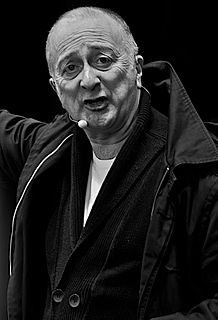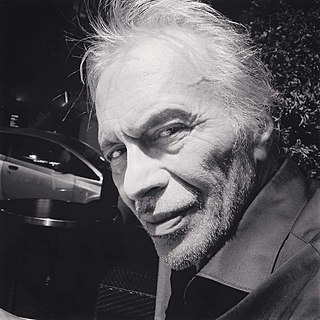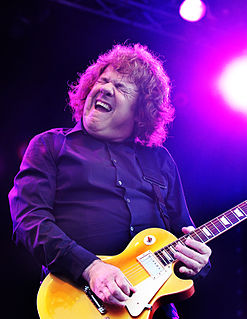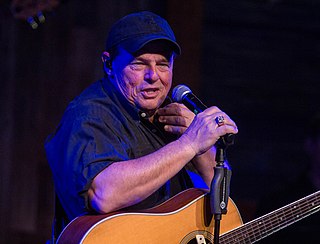A Quote by Tony Robinson
The great countercultural movement that we all know from the mid-1960s was epitomised by popular music. But within a few years another shift happened: the birth of alternative theatre.
Related Quotes
Popular music of the last 50 years has failed to keep in step with advances in musical theater, namely Stephen Sondheim. But the two have grown apart so that popular music is based more than ever on a rhythmic grid that is irrelevant in musical theater. In popular music, words matter less and less. Especially now that it's so international, the fewer words the better. While theater music becomes more and more confined to a few blocks in midtown.
For two generations up through the mid-1980s, many thought we were losing the Cold War, even in early 1989, few believed that Poland`s solidarity movement could win, that the Iron Curtain would come down, that the Baltic states could be free, that the second of the 20th century`s great evils, communism, could be vanquished without war, but it happened and the West`s great institutions, NATO and the E.U., grew to embrace 100 million liberated Europeans.
I think it is a must for young people and generations yet to come, to understand, to feel, to touch, to almost smell the drama of what happened a few short years ago [the civil rights movement of the 1950s and 1960s]. So maybe, just maybe, we will never ever repeat this unbelievable time in our history. We have to tell it all, and make it plain, and make it clear, so people will never ever forget the distance we have come, and the progress we have yet to make.
In less than a century we experienced great movement. The youth movement! The labor movement! The civil rights movement! The peace movement! The solidarity movement! The women's movement! The disability movement! The disarmament movement! The gay rights movement! The environmental movement! Movement! Transformation! Is there any reason to believe we are done?
It's great to have a job and then go to another one, and have another one to go to after that. It doesn't always happen; you might be waiting a few months. But I've had some interesting roles, and worked with some great people. And it has been a really interesting mix between theatre television and film.
Over the past 100 years, there have been three major periods of tax-rate cuts in the U.S.: the Harding-Coolidge cuts of the mid-1920s; the Kennedy cuts of the mid-1960s; and the Reagan cuts of the early 1980s. Each of these periods of tax cuts was remarkably successful as measured by virtually any public policy metric.



































